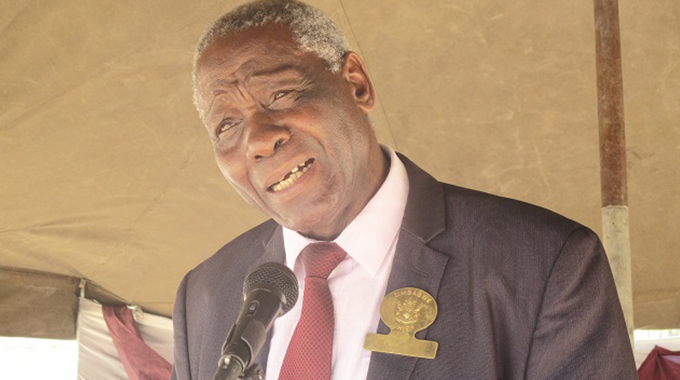South Africa delegation arrives for Bi-National Commission

Felex Share, Harare Bureau
Senior government officials from South Africa arrived in the country yesterday for preparatory meetings of the third session of the Zimbabwe-South Africa Bi-National Commission (BNC) amid indications that the $400 million National Railways of Zimbabwe (NRZ) deal will be on the agenda.
The BNC, to be held next Tuesday, will be co-chaired by President Mnangagwa and his South African counterpart, President Cyril Ramaphosa, coming hard on the heels of a similar fixture between Zimbabwe and Botswana last week.
The two leaders, widely considered to be pro-business, are expected to take strong bilateral cooperation between the two neighbours a notch higher.
Foreign Affairs and International Trade spokesperson Mr Gideon Gapare yesterday said all was set for the BNC which is the highest bilateral framework of cooperation between the two countries.
“A team of senior officials is coming today (yesterday),” he said.
“There will be a preparatory meeting tomorrow to be attended by senior officials of both countries. Thereafter we will have a meeting of Ministers.”
Senior officials will meet today and tomorrow while a Ministerial meeting will be held on Monday.
Appearing before the Parliamentary Committee on Foreign Affairs and International Trade—chaired by Cde Kindness Paradza (Zanu-PF)—Foreign Affairs and International Trade secretary Ambassador James Manzou yesterday said the NRZ deal would be discussed under the BNC.
“On the figure of $400 million for the recapitalisation of the NRZ, I will not go into details of this issue because it is on the agenda of the BNC which starts its work tomorrow (today),” he said.
“I hope this could be an issue that will be subject of an update when my Minister comes to appear before this Committee.”
The deal between NRZ and a consortium led by the Diaspora Infrastructure Development Group (DIDG) and South Africa’s Transnet has been hanging in the balance since 2017.
Ambassador Manzou said the BNC will also review progress made on previously agreed projects.
“We note with conviction that the convening of these BNCs the highest cooperation framework between two countries is testimony of the Second Republic’s quest to position the country back to its former glory and the willingness of our neighbours to assist us in our development efforts,” he said.
The high-level talks comes after Zimbabwe had another successful bilateral engagement with Botswana.
The BNCs are in line with the Sadc Strategic Regional Integration plan.
South Africa is Zimbabwe’s largest trading partner and next week’s meeting is expected to further strengthen political, economic, social and cultural relations between the two countries.
During the last BNC held in South Africa in 2017, Zimbabwe and South Africa agreed to operationalise the Beitbridge One-Stop Border Post.
The two countries agreed that the border had become the busiest port of entry on the continent and as such, there was need to facilitate the smooth flow of business for the benefit of both countries.
Zimbabwe and South Africa also signed five agreements for cross-border trading cooperation, energy, environment, information communication technologies (ICT) and sports and recreation.
The engagements are also likely to centre on sanctions imposed on Zimbabwe.
President Ramaphosa has on several occasions called for the unconditional lifting of the sanctions on Zimbabwe.
South Africa’s International Relations and Cooperation Minister Lindiwe Sisulu recently said: “Our President (Ramaphosa) will lead the delegation to Harare.
“I thought by now sanctions imposed on Zimbabwe Government and its people would be lifted to enable the country to start afresh after all the challenges they have gone through.
“We call on EU and particularly the United Kingdom (UK) to give the Government and the people of Zimbabwe a chance to change their situation by urgently lifting the sanctions.
“Without lifting the sanctions, the Government of Zimbabwe will never be able to address its economic challenges, and this is compromising the political gains achieved since the coming in of the new President.”












Comments